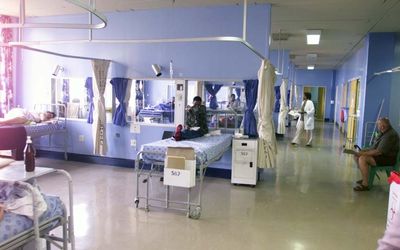IN A decision that has far-reaching implications for medical scheme members, the Constitutional Court has dismissed Genesis medical scheme’s application for leave to appeal against a Supreme Court of Appeal (SCA) judgment last year, upholding the supremacy of the Medical Schemes Act over the rules of individual schemes.
The SCA ruled that medical schemes could direct patients to state hospitals for treatment for Prescribed Minimum Benefits (PMBs) only if they had put designated service provider contracts in place.
Genesis had not set up contracts with the state, and had refused to pay for three external prostheses for a member with a broken leg fitted privately.
The ruling opened the way for Genesis members who had PMB claims rejected on similar grounds to dispute these decisions with the scheme, said former Council for Medical Schemes strategist Boshoff Steenekamp, who now works for MMI Holdings. The council’s code of conduct on PMBs says a member may raise a clinical dispute for up to three years after a claim has been rejected.
PMBs are a basket of healthcare benefits all schemes must provide to their members, and include 270 medical conditions, 25 chronic diseases, and emergency care. A broken limb is a PMB, and the act contains provisions regarding how these benefits must be handled.
The provisions are intended to ensure medical scheme members are protected from big medical expenses, and says members’ claims for these benefits must be paid in full. Schemes can take steps to manage the costs, for example by requiring members to use designated service providers with which they have negotiated rates.
Genesis principal officer Brian Watson declined to comment on the effect of the Constitutional Court’s decision for the scheme and its members.
The SCA matter centred on a row between Genesis and the council over Genesis’s rejection of a member’s claim for three prostheses that had been fitted in a private hospital.
Genesis, which did not have contracts in place with state hospitals for fitting prostheses, had contended that its rules excluded the provision of prostheses in a private hospital and covered only those fitted at state hospitals.
It argued that even if its rules were in contravention of the Medical Schemes Act, they were binding on its members until the registrar of the council compelled it to amend its rules, (which it had not).
The court said the rules of a medical scheme could not be seen in isolation, and Genesis could not contract out of the obligations set out in the act, which required it to pay in full for prescribed minimum benefits.
It said the act gave Genesis the opportunity to manage its liabilities for payments for PMBs by appointing designated service providers, but it had failed to do so, and so was obliged to pay for the member’s prostheses.
The extent to which medical schemes pay for PMBs is a fiercely contested issue that is under the spotlight at the Competition Commission’s inquiry into the private health system, now in its third week of public hearings.






















Change: 0.96%
Change: 0.73%
Change: 2.82%
Change: -0.03%
Change: 2.23%
Data supplied by Profile Data
Change: 0.42%
Change: 1.06%
Change: 0.96%
Change: 0.00%
Change: 0.77%
Data supplied by Profile Data
Change: -3.21%
Change: -1.53%
Change: -2.18%
Change: -2.02%
Change: -1.86%
Data supplied by Profile Data
Change: -0.45%
Change: 0.51%
Change: 1.86%
Change: 1.90%
Change: 2.61%
Data supplied by Profile Data